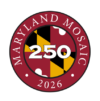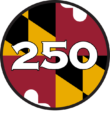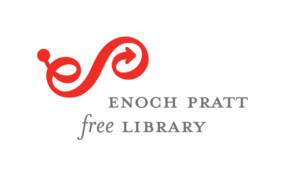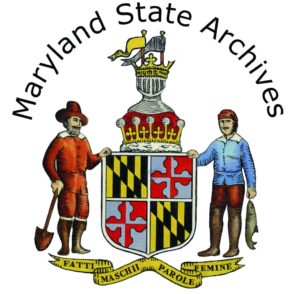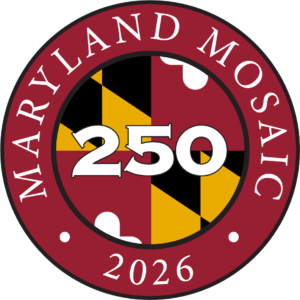Connecting individual stories with the broader context of our state's history
News & Events
Upcoming Events
Join us for public programs about Maryland’s History
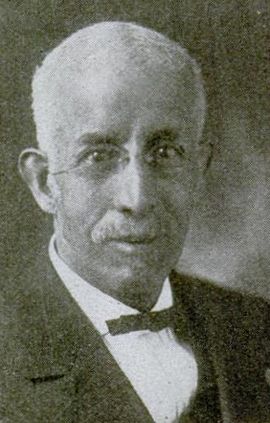
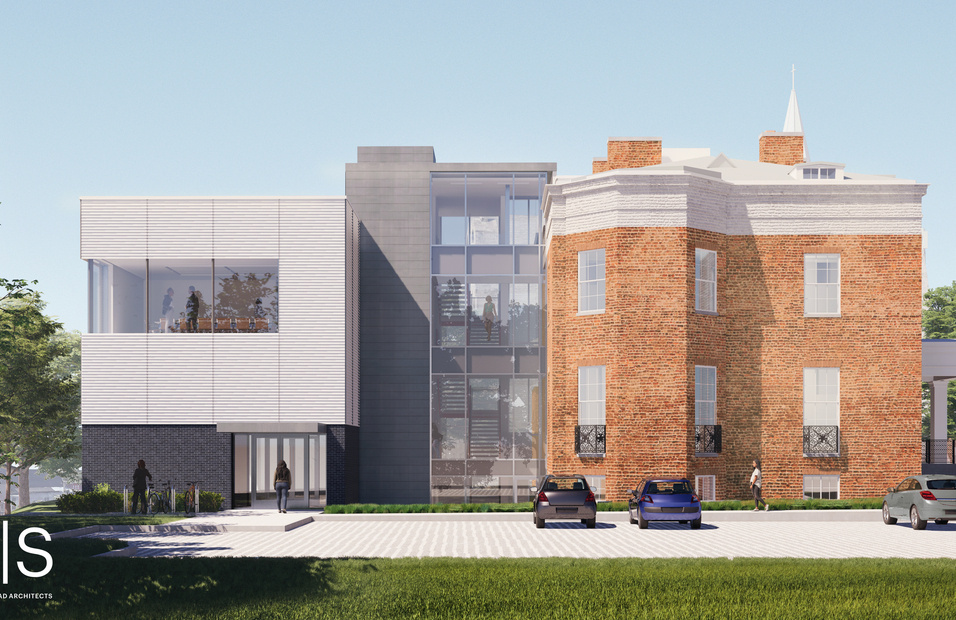
Preserving the AFRO News Archives
Founded in 1892 by John Murphy, the Afro is the oldest family-operated African American newspaper.
Thursday, March 13 from 1–2pm
Virtual Program
Join Afro Charities’s executive director Savannah G.M. Wood for an engaging discussion about the organization’s efforts to preserve the Historic AFRO American Archives. Founded in Baltimore in 1892 by John Murphy, the AFRO was a crucial voice in the fight for civil rights from the very beginning. It grew into a vital news source for the African American communities along the East Coast, with editions in Washington, D.C., Richmond, Philadelphia, and Newark, New Jersey. Today the 4th and 5th Murphy family generations are still running the Afro, making it the oldest family-run African American newspaper in the country.
Wood will discuss AFRO Charities’s current processing project, public programs, and their redevelopment of Baltimore’s historic Upton Mansion as the public research center for the collections. An artist’s rendering of the completed building is shown here.
To Join the Webinar:
Please go to the Pratt Library’s event page
and search for “March 13”.
Click on “Lunch and Learn” and you can register in advance with Eventbrite.
To join virtual streaming:
Visit the Enoch Pratt Library Facebook or Youtube channel.
Questions and comments can be entered in the chat column.
The Pratt no longer has zoom links to programs.
This program is part of the Lunch and Learn series on
Maryland’s history in today’s context.
* ASL interpretation will be available for attendees.
Sponsored by the Enoch Pratt Free Library, the Maryland State Archives and Maryland’s Four Centuries Project.

About the Presenter
Savannah G.M. Wood is an artist with deep roots in Baltimore and Los Angeles. As the Executive Director of Afro Charities, she is leading the charge to increase access to the 130+-year-old AFRO American Newspapers’s extensive archives. In this role, she has shepherded the organization through a period of historic growth, initiated new programming, and attracted support from national funders including the Mellon Foundation, the Andy Warhol Foundation for the Visual Arts, and The Ruth Foundation.
Wood is a graduate cum laude of the University of Southern California. She is a 2025 Tabb Research Center fellow, a member of the 2023 class of The Leadership Baltimore, a 2022 Saul Zaentz Innovation Fund fellow, 2022 Creative Capital finalist, and a 2019-2021 Robert W. Deutsch Foundation fellow. Like four generations of ancestors before her, she lives and works in Baltimore, Maryland, sharing and preserving Black stories.
Event Archive
Click below to view a list of previous events
Headings in gold link to additional information or digital recordings, when available.
Preserving the AFRO News Archives
Savannah G. M. Wood, March 2025
Enslaved Workers at Catoctin Iron Furnace Identified by DNA
Elizabeth Adson Comer, February 2025
“Baltimore’s Own” Soldiers in World War I: No Longer Lost to History
Mike Martin, January 2025
The Missionary: William Levington, Founder of St. James First African Protestant Episcopal Church
Lawrence Jackson, December 2024
The Battle of St. George’s Island – 1776: The only Revolutionary War Battle in Maryland
Dr. John L. Seidel and Charles Fithian, November 2024
Real Learning, Real Impact: The Digital Scholarship in Museum Partnerships Project
Raven Bishop, Sara Clarke-De Reza, Ph.D., Julie Markin, Ph. D., November 2024
Elizabeth Patterson Bonaparte and the Material World of an Imperial Legacy
Alexandra Deutsch, September 2024
The USS Maryland’s Silver Service: History Captured in Repoussé
Robin Gower, August 2024
Unearthing, Preserving, and Promoting LGBTQ+ History in Maryland
Ben Egerman, July 2024
Eric A. Cheezum, June 2024
Ezra Greenspan, May 2024
Mayaisuwàk (They Speak in One Voice): The Oral History and History of Place of Maryland’s Eastern Shore Tribal Communities and Remnant Descendants
Drew Shuptar-Rayvis (Pekatawas MakataWai’U/ Sëk Xàskwim – Black Corn), April 2024
A Maryland Mosaic for the U.S. 250th Anniversary: Finding the Historical Pieces to Create a Dynamic Picture of Maryland
Burt Kummerow, March 2024
Reclaiming Black History: A Community Research Effort That Led to the Truth, a Book, and Hopefully Change
Marlena Jareaux, Wayne Davis, Christine Bulbul, February 2024
The Rise, Fall, and Redemption of Senator Daniel B. Brewster
John Frece, January, 2024
Maryland’s Longest Intrastate River: the Patuxent
Ralph Eshelman, December, 2023
The Washerwomen of Baltimore 1800-1864
Dr. Edward C. Papenfuse, November, 2023
Black Lives in Focus: African American Faces from Early Maryland
Ross Kelbaugh, October, 2023
Maryland at the 1893 Chicago World’s Fair
Rachel Frazier, September, 2023
When Harry Met Elsey: Madness, Power, and Justice in Federal-Era Baltimore.
Rob Schoeberlein, August, 2023
Stolen: A Story of Kidnapping and Escape in Antebellum America.
Rick Bell, July, 2023
African American Land Preservation and Conservation on the Chesapeake.
Vince Leggett, June, 2023
True Crime in the Stacks: Archival Research of Murders.
Kasey Maes, May, 2023
Transforming the Riversdale House Museum.
Maya Davis, April, 2023
A Taste of Maryland and the Great Recipe Hunt.
Food historian Joyce White, March, 2023
Stories from the Crownsville Cemetery at the Hospital for the Negro Insane of Maryland.
Janice Hayes-Williams, February 2023
Maryland’s Jews and Military Service in the Revolutionary War.
Owen Lourie, January 2023
“Washington Resigns – How George Washington’s Career led to Annapolis in 1783.”
Burt Kummerow, December 2022
Baron Johann de Kalb — A Revolutionary War hero honored in Annapolis.
John Beakes, November 2022
Maryland State Archives announces a major research site about Maryland indigenous peoples.
Maria Day and Megan Craynon, October 2022
A Family of Flagmakers and a National Historic Landmark.
Amanda Shores Davis, September 2022
The Legacy of Alex Haley on the centennial of his birth, with his nephew.
Chris Haley, August 2022
Frederick Douglass: Marylander or Washingtonian?
Vince Vaise and Kevin Bryant. July 2022
Reversing the Sail: Black Maryland in Africa. The Colonization Movement.
Herbert Brewer, June 2022
From Treasure House to Production House: Stories of the Peale from 1814 to the Future.
Nancy Proctor, May 2022
Half a Century of Discoveries at St. Mary’s City.
Henry Miller, March, 2022
Heroes of the Underground Railroad.
Jenny Masur, February 2022
Preservation — The Last Best Hope.
Nick Redding, January 2022
Mt Olivet Cemetery, Frederick MD.
Chris Haugh, November 2021
Mysterious Maryland — Bizarre and Unexplained stories.
Rachel Frazier, October 2021
Forgotten Black Laurel Cemetery in Baltimore.
Dr. Elgin Klugh, Dr. Issac Shearn, September 2021
Catherine Anne Green publishes The Maryland Gazette by herself, 1767-1775.
Diane Rey, August 2021
The Influence of Baltimore’s Black Politicians; A biography of Victorine Q. Adams.
Dr. Ida Jones, July 2021
Maryland State Art Collection — painting, sculpture, decorative arts, works on paper.
Catherine Arthur, June 2021
Maryland Women Divided by the Civil War.
Rob Schoeberlein, May 2021
Uncovering the Original Fort at Historic St. Mary’s City.
Travis Parno, April 2021
Laws of Racial Oppression in Maryland from 1634- 1865.
Chris Haley, March 2021
Civil War Caretakers
Burt Kummerow, February 2021
The Origins of College Park.
Dr. Herbert Brewer, February 2020.
Washington and Maryland.
Burt Kummerow. February 2020
Washington’s Immortals Maryland’s Revolutionary War heroes and the original Maryland 400.
November 2019
George Washington and Cumberland. The Education of a Future Founding Father 1753-58.
Burt Kummerow November 2019
French Revolutionary terror in Maryland and the U.S.
Dr. Matthew Hale, October 2019
Previews to Hamilton.
Burt and Mary provide historical background to this play. July 2019
“The Margaret” In 1718 A Slave Ship Arrives in Annapolis.
Dr. Herbert Brewer October 2019
Slavery in Maryland: How did it Begin? How did it End?
Dr. Travis Parno and Dr. Terry Brock. Baltimore, November, 2018
Meet Maryland’s First Ship: A New Maryland Dove.
Captain Will Gates. St. Michaels, November 2018
The English, Forced to Create a New Society in Maryland, Attempt a Bold Vision.
Dr. Ed Papenfuse, Annapolis, November 2018
First Americans and England’s Potomac Frontier, 1607-1676.
Dr. Stephen Potter. Frederick, October 2018
